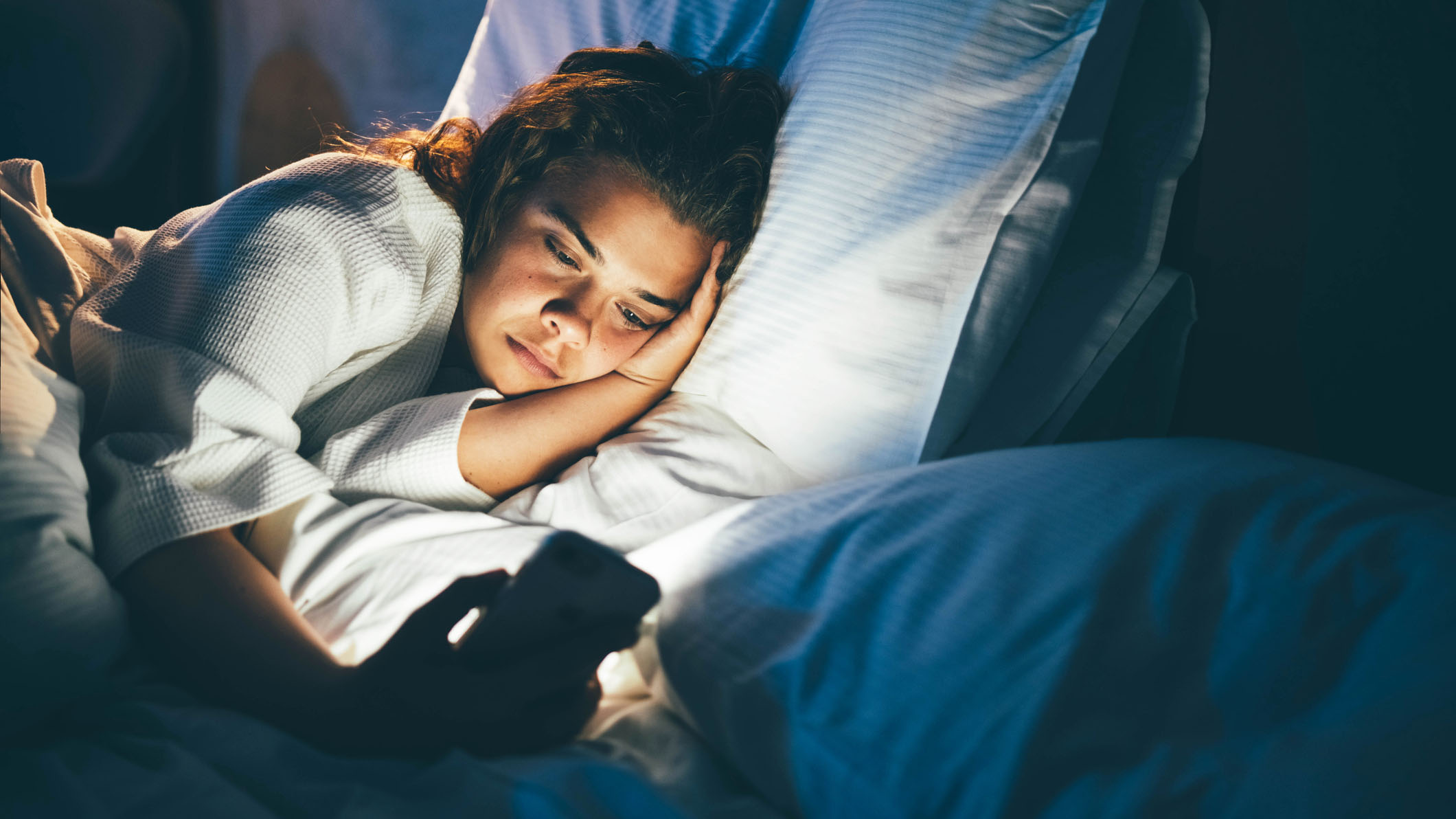Sleep expert shares biggest mistake people make when waking up in the middle of the night
What to do (and not do) if you keep waking up in the middle of the night and aren't sleeping through

Waking up in the middle of the night can be frustrating, especially if you then can't get back to sleep quickly. Frequent night wakings can lead to sleep deprivation, which can cause a whole host of health issues in the long term. So what should you do if you wake up in the middle of the night? How do you get back to sleep easily and quickly? And how can you reduce night wakings overall?
But Olivia Arezzolo, an Australian based sleep expert and author, has some advice for those of us who keep waking up at night. Arezzolo recently outlined three specific things a person should do if they wake up in the middle of the night, and one to categorically avoid.
In the US, a third of adults admit to waking frequently throughout the night. Common causes of disrupted sleep can include noise and light pollution, temperature, needing the bathroom, as well as certain sleep disorders, like sleep apnea. Investing in the best mattress for your body and sleep style and making sure your room is cool, dark and and quiet are just two ways you can optimize your sleep environment and cut down on nighttime wakings.
3 things you should do if you wake up in the middle of the night
In an Instagram video, Arezzolo outlines three things you should do if you find yourself awake in the middle of the night. “This is for when you’re awake throughout the night, but also if you can’t fall asleep at the start of the night,” she explains.
A post shared by Australia’s #1 Sleep Expert (@oliviaarezzolo)
A photo posted by on
1. Get up after 20 minutes of being awake
If you’ve been lying in bed staring at the ceiling for 20 minutes, it’s time to get up and move to another part of the house. “[Getting up] is a pattern interrupt, breaking the repetitive loop of thoughts,” explains Arezzolo. Struggling to fall asleep can be stressful, and the last thing you want to do is to begin to associate your bed with a place of stress as this can have a lasting impact on your sleep quality.
2. Put on blue light-blocking glasses
At nighttime, our brains produce a sleep-inducing hormone called melatonin. Melatonin helps us fall asleep by making us feel tired, but stimulating blue light emitted from technology screens reduces our melatonin levels, leaving us feeling wide awake. Arezzolo advises putting on “100% blue light blocking glasses” when we wake up in the middle of the night to avoid disrupting our natural melatonin levels.
“If you do not, know that any blue light will increase cortisol, the awakening hormone driving your night time wakings,” stresses Arezzolo. Scientifically speaking, the jury’s still out over whether blue light blocking glasses actually work — but they’re certainly worth a try.
Sign up to get the BEST of Tom's Guide direct to your inbox.
Get instant access to breaking news, the hottest reviews, great deals and helpful tips.

3. Read, journal or meditate
Arezollo then suggests that you either read, meditate or journal, all of which have been shown to lower stress levels. Journaling, specifically, is a science-backed way to help reduce anxiety. Simply write down the things that are making you feel anxious in order to break the negative cycle of rumination, which is when we dwell on negative thoughts.
However, reading, meditation and journaling will only lower your stress levels if you find them relaxing, so opt for any activity that you find soothing, even if it’s just folding laundry. Persevering with an activity because it’s supposed to be relaxing won’t help you get back to sleep.
The biggest mistake people make when waking up at night
As for the one thing you categorically shouldn't do? Pick up your phone, even if it’s just to tell the time. “Do not go on any device, especially not social media,” urges Arezollo. “This makes it harder to fall back asleep.”
It isn’t just the impact that scrolling on your phone has on your melatonin levels that you need to be wary of here — your melatonin levels will go down, and cortisol (the stress hormone) levels will go up, which makes falling asleep even harder.
How to stay asleep all night
Of course, the best way to combat nighttime wakings is to stop them altogether. However, it's important to also recognize that our sleep cycles are designed to incorporate a certain amount of wakeful periods during the night, but ideally these will be so brief that you don't even remember them. If waking up in the middle of the night is impacting your sleep quality, try the following:
- Get the temperature right: The optimal temperature for restorative sleep is around 20 and 25 °C (68 and 77 F), so try to get your bedroom as close to that as possible before bed. If overheating in the middle of the night is a common occurrence, check out the best cooling mattresses for better temperature regulation.
- Go to bed when you're sleepy, but not early: When we go to bed too early, there's less physical desire (this is called your homeostatic drive) to go to sleep, which means you'll likely be tossing and turning for longer, Instead, going to bed when you're tired for a more peaceful sleep.
- Optimize your sleep space: When embarking on a quest for better sleep, it's easy to overlook the basics. Make sure your sleep hygiene is up to scratch, that means decluttering your bedroom and ensuring that your sleep environment is cool, dark and quiet.

Nicola is the Sleep Editor at Tom’s Guide, where she helps steer the mattress and sleep content published on Tom’s Guide, including our Best Mattress for Back Pain buying guide. With a career in journalism spanning the best part of two decades, Nicola brings experience to the team and the knowledge of what makes a great article, whether that’s a how-to mattress cleaning feature, a deep dive into melatonin gummies, or an in-depth mattress review. As a sleep editor, few better understand how important a decent mattress is to the overall quality of our sleep, and precisely how our sleep impacts our physical and mental health. As well as tackling the vast topic of sleep, Nicola joins the raft of expert mattress specialists at Tom’s Guide, who test and compare a wide range of mattresses in order to guide readers towards the very best options on the market.
